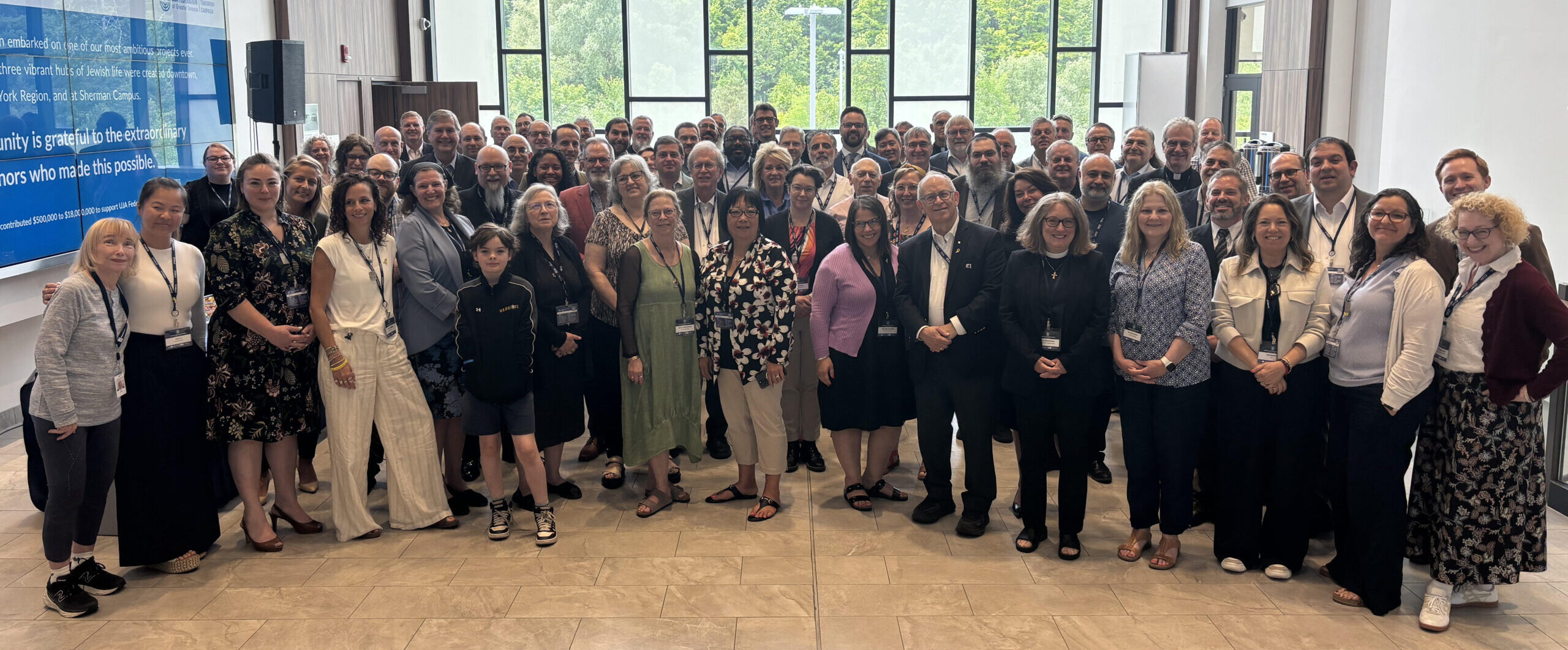How do you change someone’s mind? When they are hard as rock in their position, do you hit back with the same hardness, or do you take a different approach? What reshapes a rock?
That’s the question I’m interested in from this week’s Torah portion, Chukat, which includes the heartbreaking episode that disqualifies Moses from entering the Promised Land (Numbers 20:7-13). There’s no water and the Israelites begin complaining bitterly to Moses, accusing him of bringing them out of Egypt only to let them die of thirst and starvation. Moses and Aaron pray to God for help, and God tells Moses to speak to a rock, from which water will then come.
But Moses, already overwhelmed by the rebellion of the Israelites and their constant assumption of bad intentions, strikes the rock with his staff instead, saying “Listen up you rebels, should we get for you water from this rock?!” God subsequently tells Moses and Aaron, “Since you did not have enough faith in Me to sanctify Me in the eyes of the Israelites, you therefore will not bring this assembly to the land that I have given them” (Numbers 20:12). After all that Moses has done to follow God and take the people out of Egypt and toward the Land of Israel, he is forbidden from entering the Land of Israel by this moment of frustration.
Why was this such a life-changing moment? There are others when Moses is angry or upset at the Israelites. There are also moments when God is angry or upset at the Israelites, and Moses defends them!
To understand this, I want to look at another story about water and rocks. In Talmudic literature, some rabbis simply appear on the scene and are quoted as authorities. Others, like a great comic book hero, have their origin story told. Rabbi Akiva, one of the greatest rabbis of the Talmud, has a remarkable origin story (see Avot DeRabbi Natan).
A simple, unlearned shepherd, Rabbi Akiva was standing at the mouth of a well and saw the stone worn away. He asked, “Who carved this stone?” and people told him, “The water that drips on it every day.” Akiva had imagined someone carved the stone with a tool, but it was only the slow and steady dripping of water that wore down the stone. Sometimes the most powerful thing doesn’t seem so strong at first. It was this encounter that inspired Akiva to go and learn, saying “If something soft can carve something hard, then all the more so the words of Torah, which are like steel, can engrave themselves on my heart, which is but flesh and blood.” He dedicated his life to learning, starting with learning the aleph-bet in his young son’s classroom and eventually becoming one of the greatest rabbis of the Talmud.
Soft things can transform hard things. Water can carve stone. Kind words can change hearts, not just striking.
Last week, I had the privilege of attending the Simeon Initiative’s Jewish-Christian Leaders Summit, co-sponsored by CIJA. Motivated by a deep concern about rising antisemitism in Canada, Cardus, a conservative-leaning Christian think tank, created a project to mobilize Christian pastors and community leaders to partner with rabbis and Jewish communal leaders to push back against antisemitism in Canada. Last week was the kickoff, in which 120 rabbis, pastors, and communal leaders gathered to learn, to listen, and to start to form authentic relationships, built on trust and support. I found myself in a room of people with many of whom I disagree on points of policy and culture, whether it be about gender and sexuality, when conception begins, how to measure and ensure equity, and more. On some issues, I might even say they are my opponents.
Yet sitting with those Christian colleagues last week helped me to find something softer with which to try to make change. Over the last year and a half, I have certainly been frustrated at what has felt like silence from churches and Christian community about October 7 or antisemitism. I even helped write a statement calling on non-Jewish faith leaders to condemn the October 7 attacks. The Jewish community has launched campaigns, petitions, lawsuits, and letters of condemnation for many incidents of antisemitism, both large and small. These are what I might call some of the sharper ways of making a change, of hitting or carving the rock.
But sometimes we need to work softly, like water slowly dripping, day in and day out. It is the relationships, speaking with one another, revealing our hearts, opening to being vulnerable that wears away at the stone. I am excited to see where my new friendships with Christian colleagues may lead, both for the good of Canadian society and for my own personal growth.
Perhaps this was the essential disqualification of Moses as a leader in that moment. God said, Speak to the Israelites. They need someone to speak with them. And Moses said to himself, What good will speaking do? I must strike and show my toughness and my power. He still brought water from the rock. But his method wasn’t the kind that would take the Israelites into the Promised Land. For that, perhaps, a leader needs a softer touch.

